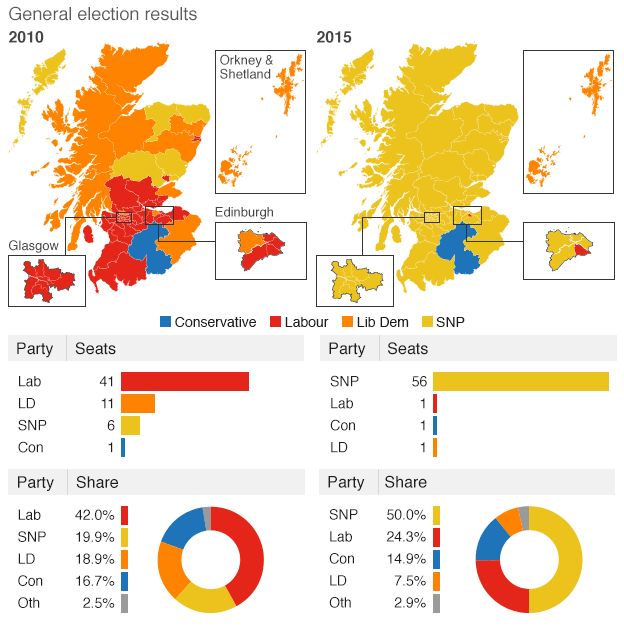Milliband still polled 25% in Scotland and at least kept second place, well ahead of the Conservatives.
Corbyn has taken Labour down to third place with only 15%, barely half of what the Conservatives are now polling.
But then with Corbyn's apologists, he is not to blame for anything. It's all the doing of the evil Blairites.

